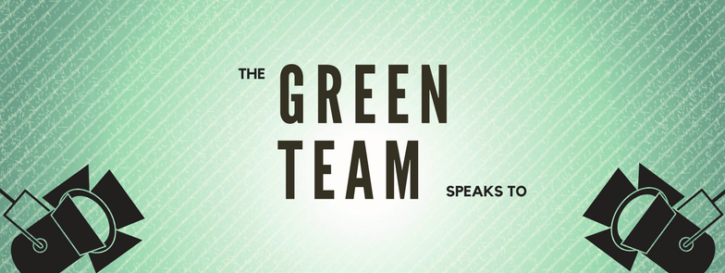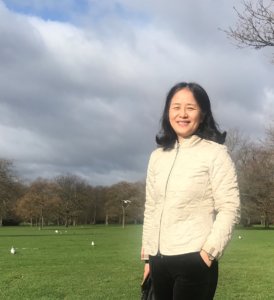
Cao Li is Vice President of the Boao Forum for Asia Academy (BFA Academy), where she leads research on finance, trade, and sustainable development issues, convenes expert roundtables and conferences, and manages the publication of the flagship reports issued during the annual Boao Forum for Asia (BFA) gathering in Hainan.
 About Cao Li:
About Cao Li:
- Previously, she was Deputy Director-General of the International Department and the Institute of Digital Currency at the People’s Bank of China (PBOC). In those roles, she took part in the international cooperation efforts of the central bank, including international financial standard-setting and development finance.
- Ms. Cao also served as Deputy Manager of the Trading Room of the PBOC Frankfurt Office from 2011-2014 and was appointed as Advisor to the Executive Director for China at the International Monetary Fund (IMF) from 2002-2004.
The BFA is the first international convention organization headquartered in China. The BFA Academy is the brains behind the forum. but many people do not know much about it. What is the Academy and what does it do, especially its efforts to promote Asian and global economic prosperity and sustainability? Can you also share with us some of the topics of the 2020 BFA?
The BFA is a non-governmental and non-profit international convention organization focusing on Asia and the world. Its namesake comes from its address in the town of Boao in Hainan Province, where the event is held every spring. Initiated by 29 member states, the BFA was founded in 2001 as an international platform for high-level dialogue and is commonly known as the Boao Forum. It has a 19-member Board of Directors, which provides guidance to the operations of the Secretariat.
In 2018, the Boao Forum elected its current Board of Directors including Chairman Ban Ki-moon, former United Nations Secretary-General, Vice-Chairman Zhou Xiaochuan, former PBOC Governor, and Secretary-General Li Baodong, former Vice Minister of China’s Ministry of Foreign Affairs. Since its inception, the Boao Forum has received strong support from the Chinese government, the host nation.
Let me introduce the 2020 BFA. As Secretary-General Li mentioned at a news conference in January this year previewing the gathering, the world is facing changes and uncertainties. The theme of the annual conference in 2020 is “A World in Change: Bond Together for a Shared Future.” There will be over 50 sessions covering five key topic areas covering development trends, industrial changes, cutting-edge innovation, good living, and global governance. We hope that a diverse group of global leaders will be interested and participate in the BFA annual conference. The exact timing will be announced at a later date as China combats the Coronavirus epidemic.
Also founded in 2001, the BFA Academy is indeed the brains behind the Boao Forum. For example, the theme of this year’s conference was designed by the Academy based on wide consultation with stakeholders. In addition to providing intellectual resources to the annual conference and other events, the Academy writes and publishes research reports, offers human resources training, and develops a networking and information exchange platform in Asia and the world. We work closely with thought leaders like ASEAN+3 Macroeconomic Research Office (AMRO), Asia Financial Cooperation Association (AFCA), Central Asia Institute, BRI Green Development International Coalition, Chinese Academy of Social Sciences (CASS), China Society for Finance and Banking, National University of Singapore, and Caixin Insight to accomplish our goals in these various areas.
Our research on WTO reform, publications on infrastructure finance, poverty reduction, and green development on the Belt and Road Initiative (BRI), and roundtables in Tokyo and Abu Dhabi on regional economic integration were some of the highlights in 2019.
We have a lot of work ahead with plans to study global pension reform with a focus for Asian countries on the sustainability of pension schemes in aging societies. In addition, we plan to publish six flagship reports on Asia’s economic outlook and integration process, regional trade agreements, Asian poverty reduction, inclusive finance, technological innovation, and public health during this year’s conference.
The Academy is small so there is a lot to do in terms of institutional development. But we are clear about our role and goals. We want to become a virtual think tank and knowledge sharing center that can mobilize resources in Asia and the world.
In September 2019, the BFA published the Belt and Road Green Development Report: Case Studies. It is the first time that the BFA published a special report on the topic of green development. The report summarized the green development experience along the BRI across key sectors. Can you share your thoughts on green development along the BRI?
In September 2019, BFA and the BRI Green Development International Coalition jointly wrote and published the Belt and Road Green Development Report: Case Studies. The report covered six areas, such as pollution control, ecosystem management and protection, and green energy. It selected case studies that highlighted the green development practices from Belt and Road countries including China, South Korea, Israel, Indonesia, Myanmar, Malaysia, Vietnam, Ethiopia, and Egypt. I hope that the BFA can become a knowledge sharing and exchange platform for green development experiences. “Finding a New Growth Model to Address Climate Change” is one of the important topics of the annual conference in 2020.
For Belt and Road countries, green development is an important way to achieve high quality, inclusive, and sustainable development. They must balance green growth and short-term development, reduce their reliance on mining and use of mineral resources and fossil fuels through technology transfers and financial support, increase environmental pollution control, and gradually transition to green and low-carbon growth.
Green development on the BRI is an important avenue globally to address climate change, achieve Paris Accord goals, and reduce carbon emissions.
In recent years, green finance has become a bright spot in China’s financial sector and a new area for international cooperation. The PBOC and other ministries played a key role in this development by leading the G20 Green Finance Study Group and establishing the first green finance policy framework in the world. In your previous role at the PBOC’s International Department, you were involved in policy dialogues and the development of global financial sector standards. Can you share your thoughts on and recommendations for the development of green finance?
When I was working in the International Department of the PBOC, I had the first-hand experience and deeply felt that central banks can make a difference in terms of promoting green finance to address climate change. It is their responsibility to do so.
Central banks around the world have been actively and intensely discussing the risks that climate change brings to the financial system, required policy responses, green finance standards, and diversified financing.
For example, we support the Financial Stability Board’s decision to form a climate-related Financial Disclosure Working Group, involving over 1,000 companies from 8 industries and 142 countries. These companies are required to regularly disclose climate-related financial changes to provide basic information for assessing the business risks brought by climate change and supporting the decisions of central banks.
In addition, since the end of 2017, the central bank of France has worked with the PBOC and six other central banks and regulators to establish the Network of Central Banks and Supervisors for Greening the Financial System (NGFS). It now includes 51 members.
Christine Lagarde, the new president of the European Central Bank (ECB) said soon after she took office that the ECB needed to think about what role it could play in addressing climate change—another encouraging signal. Frankly, green finance standards determined and unified by central banks will be critically important to institutional investors globally who adhere to environmental, social, and governance (ESG) investment principles.
Green and low-carbon lifestyles have become a global consensus. What do you do in your daily life to promote green and low-carbon behavior?
Each and every one of us through our individual choices can contribute to green growth by choosing green and low-carbon lifestyles that consume less energy and are environmentally friendly. And the Ant Forest app that sets up “carbon accounts” for users is one way for individuals in China to be encouraged to adopt a greener lifestyle.
I believe that creating green homes is an important part of green and low-carbon living that can become part of building smart cities. I am all about the energy efficiency of residential buildings and infrastructure because buildings consume 40% of the world’s energy per the European Commission’s latest estimates.
Obviously, these improvements cannot be made by individual families but will require buy-in from all stakeholders, big investments, and new technologies. But applying cutting-edge technology like better using solar energy to replace central heating, smartly regulating temperatures to reduce waste, installing equipment to crush kitchen waste to reduce the need for large-scale waste management plants, and using high-quality plumbing and cleaning services to reduce pollution and increase the service life of pipes can truly make a big difference in reducing energy consumption.


